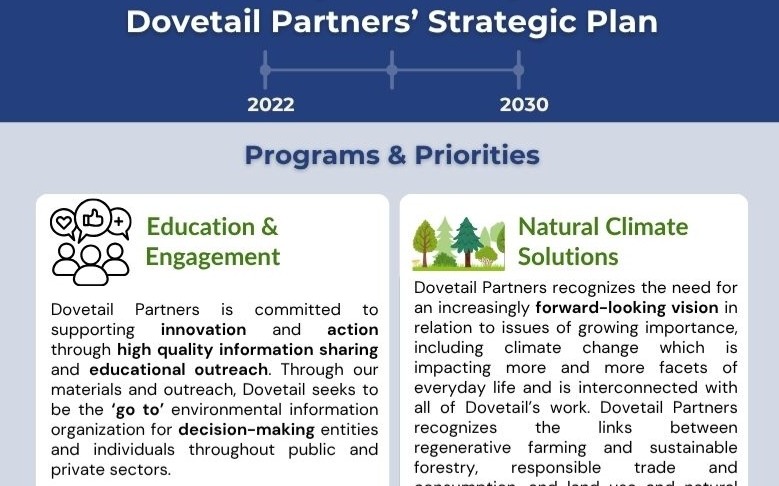Certification of consumer goods based on environmental and/or social responsibility standards, such as certification of forests and forest products, can be used as an effective and cost efficient tool by governments and inter-governmental organizations to improve compliance with a wide variety of social and environmental policies and commitments. However, thus far governments around the globe have generally been reluctant to show strong support for forest certification and other certification programs despite the growing evidence of their positive impacts. For the most part certification is having these impacts despite, not because of, government policy.
Individuals within departments of the environment, departments of international development, parliaments and even forestry departments are often extremely supportive of forest certification. But there are few governments prepared to openly endorse forest certification as delivering the social, environmental and economic objectives that they have agreed to promote, domestically and internationally, in numerous international treaties and national regulations. Even those governments that do have departments with supportive policies seem to find it extremely difficult to support specific certification schemes even when there is clear evidence that they contribute to specific policy needs and objectives.
Certification is certainly not a silver bullet that can quickly solve every conceivable problem related to forests worldwide. The challenges facing the world’s forests and its forest dependent peoples are the kinds of challenges that need decades, not years, to correct. Nonetheless, forest certification could greatly help in addressing a wide array of problems with the caveat that it is extremely hard for forest certification to work effectively in the absence of an enabling national policy environment.
In addition to action through policy development, governments can have a significant and direct influence on supply chain behavior through their own procurement behavior. As an example, figures presented to the UK government Environmental Audit Select Committee in July 2002 stated that the public sector as a whole used up to 40% of all timber and wood products (construction timber, furniture, and paper) consumed in the UK, and central government contracts accounted for approximately 14% of UK timber use. Lenient government procurement policies continue to provide a ready market for cheaper products whose production does not comply with social or environmental standards, or even legal requirements in the countries of origin. These policies directly undermine the social and environmental efforts of responsible producers, manufacturers and traders in their own countries and others. It is worth asking why such policies are not changed, and why forest certification isn’t embraced as a mechanism to reduce and discourage harmful trade practices.
When pressed on such questions, a common theme emerges. Governments imply that even if they want to implement such policies they cannot, in case they are interpreted as being ‘barriers to trade’. Thus it is suggested that any government which endorses, actively supports, or preferentially purchases certified forest products might be held liable by the World Trade Organization (WTO) and face lawsuits, fines, or other penalties.
In some contexts this theme is so widespread that it has become unquestioned conventional wisdom. Governments tie their own hands, and stop themselves from using forest certification as a tool to deliver their own social and environmental policies to avoid the risk that such actions, though effective, could be perceived as a barrier to trade.
This Dovetail Report suggests that international standards for the responsible trade in forest products could provide a way out of this cul de sac. Reference to international standards would allow governments to specify and implement procurement policies that favor socially and environmentally friendly products, while making use of a non-governmental mechanism for verifying compliance. International social and environmental standards present an underutilized opportunity for improving people’s lives around the world. Governments should however be very wary of basing their national regulations on regional or national rather than international standards, and especially so in cases where there is in fact an existing international standard that could already be considered appropriate. In these cases governments are running a relatively high risk of creating technical barriers to trade (TBT).
- Lead AuthorWenban-Smith
- DateJune 2006
- CategoryBusiness Development, Economics, Environmental, Management
- Project FileDownload

.png)
.png)
.png)

.png)
.png)